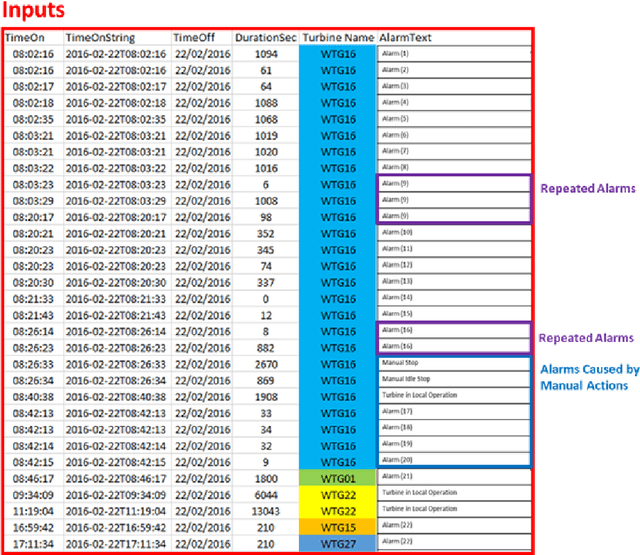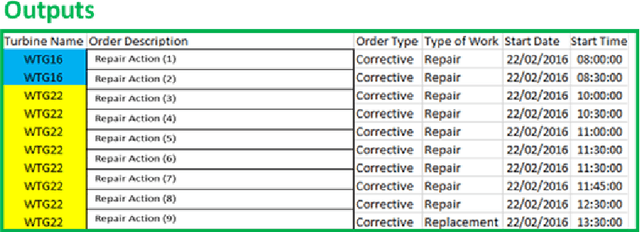A Deep Learning Framework for Wind Turbine Repair Action Prediction Using Alarm Sequences and Long Short Term Memory Algorithms
Paper and Code
Jul 19, 2022



With an increasing emphasis on driving down the costs of Operations and Maintenance (O$\&$M) in the Offshore Wind (OSW) sector, comes the requirement to explore new methodology and applications of Deep Learning (DL) to the domain. Condition-based monitoring (CBM) has been at the forefront of recent research developing alarm-based systems and data-driven decision making. This paper provides a brief insight into the research being conducted in this area, with a specific focus on alarm sequence modelling and the associated challenges faced in its implementation. The paper proposes a novel idea to predict a set of relevant repair actions from an input sequence of alarm sequences, comparing Long Short-term Memory (LSTM) and Bidirectional LSTM (biLSTM) models. Achieving training accuracy results of up to 80.23$\%$, and test accuracy results of up to 76.01$\%$ with biLSTM gives a strong indication to the potential benefits of the proposed approach that can be furthered in future research. The paper introduces a framework that integrates the proposed approach into O$\&$M procedures and discusses the potential benefits which include the reduction of a confusing plethora of alarms, as well as unnecessary vessel transfers to the turbines for fault diagnosis and correction.
 Add to Chrome
Add to Chrome Add to Firefox
Add to Firefox Add to Edge
Add to Edge